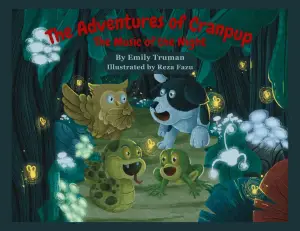Book Review: The Lost Apothecary by Sarah Penner
When I first stumbled upon The Lost Apothecary, I was instantly drawn in by its intriguing premise: a historical narrative interwoven with the secrets of a woman running an apothecary in 18th-century London. I envisioned a tale where magic mingled with poison, and a woman’s empowerment unfurled in a world where her aspirations could easily be swallowed by the patriarchy. However, my enthusiasm was soon met with… well, let’s say a bit of a reality check.
The narrative travels back and forth between the life of Caroline, a contemporary woman grappling with the fallout of her husband’s deceit, and Nella, a secretive apothecary from 1791 who concocts poisons for the desperate. At first glance, it sounds like a winning combination filled with intrigue and moral ambiguity, right? As Caroline embarks on a journey of self-discovery, she uncovers the ghosts of women who came before her—only to find herself facing some of the most clichéd tropes imaginable.
Caroline’s character felt a bit stale for modern readers. I found myself questioning how an educated woman could portray her sacrifices for marriage as the end of her dreams. Yes, we all lose sight of ourselves at times, but the portrayal felt overly simplistic and, honestly, a bit whiny. I mean, particularly galling was her fixation on Cambridge as if it were the only institution that mattered. Sorry, Caroline, but it’s a big world out there—lots of schools, lots of dreams.
Meanwhile, Nella’s historical storyline, with its dark, twisty undertones, initially beckoned me with tales of vengeance against men who wronged women. And while the research behind the apothecary’s poisons was immersive and revealing, much of the execution felt abrupt and lacking depth of emotion. The historical richness that could have encapsulated the socio-political climate of 1791 was somewhat hidden beneath generic dialogues and predictable plot points.
As for the writing style—oh boy. If I had a penny for every time a character gasped in disbelief or emotional turmoil, I could probably fund a seminar on show, don’t tell. It’s frustrating to have poignant moments reduced to melodrama, leaving me more inclined to roll my eyes than feel genuine empathy. I found myself taking notes of particularly cringeworthy quotes, like Caroline comparing her tiny adventure in mudlarking to an act of bravery. It’s hard not to smirk when you consider the scale of what “bravery” truly means.
However, I did appreciate how Penner illustrated Caroline’s moments of empowerment, especially when she confronted her husband. Those scenes were electric, reminding readers that women can reclaim their narratives, even if a little hilariously buried in a muddied tale.
To sum it up, while The Lost Apothecary serves as an entertaining distraction with a charming premise, it ultimately stumbles in execution. I can see it appealing to readers who enjoy light historical fiction without diving too deeply into the nuances of the characters or their conflicts.
So, if you’re looking for a casual read that mingles a hint of historical mystery with romantic drama, this book might just fill the void. But if you’re searching for emotional heft and layered storytelling, it might be better to move on. For me, it was a reminder that sometimes, just like that unfortunate lost review I had, some stories simply miss their mark.
Discover more about The Lost Apothecary on GoodReads >>






